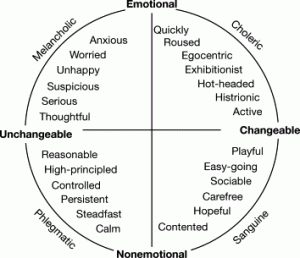Well, what is Personality actually? Once I find out “what is my personality type” it will guide me through life? …Or it will not? Does it change as we age? Or shifts when circumstances and challenges do around us? In psychology the word Personality has been popularized as the “enduring quality of people”. The scientific understanding is that – while we are unpredictable – we are yet uniform in our behavior.
There are some personality tests like the MBTI and Gallup Strengths-finder that companies and organisations have used in order to enable their employees to understand themselves and their colleagues better. Some have also been used for team-building purposes and even in dating and matchmaking sites.
So which one is good for you? Below are some links for you to find out more about yourself. You might want to guess other people’s Personality Type (PT) as well. And if you know their PT, you might be more “forgiving” with them, knowing why they talk, act and react the way they do. And it may work vice versa.
DISC
DISC is one of the most popular personality tests if you are looking for a fast way to better understand yourself and others. The foundation of the DISC model originates from the work of psychologist William Moulton Marston. His theory is that people tend to develop a self-concept based on one of four factors — Dominance, Influence, Steadiness or Compliance.
Big Five
The general consensus in academic psychology is that there are five fundamental personality traits. This model (also known as OCEAN) is assumed in most personality research, and is the basis of many of the most well-regarded tests employed by psychologists who maintain close connections with academia.
O – Openness to Experience (curious, unartistic, conventional, original…)
C – Conscientiousness (organized, aimless, lazy, reliable…)
E – Extraversion (sociable, aloof, quiet, talkative…)
A – Agreeableness (trusting, cynical, rude, helpful…)
N – Neuroticism (stable, unpredictable, nervous, secure…)
The “big five” tends to not be popular in consumer-focused personality assessment or self-help because to many people, the feedback of the model appears relatively basic. This test uses public domain scales from the International Personality Item Pool.
Myers & Briggs (MBTI)
MBTI is the earlier and popularized framework for understanding different personality types. It gives insight on how people make decisions, process information, and interact with others. The Myers-Briggs Personality Type Indicator is a self-report inventory designed to identify a person’s personality type, strengths, and preferences.
16 Personalities
- Introversion vs. Extraversion
- Sensing vs. Intuition
- Thinking vs. Feeling
- Judging vs. Perceiving
16 personalities is unique in that the test is free for anyone through the 16 personalities website. Also, unlike the MBTI, there is no certification or consulting provided. Most resources are free and available through the website. Additional resources, such as guidebooks and learning modules, are available for a small fee.
Keirsey Temperament Sorter
Temperament is a configuration of observable personality traits, such as habits of communication, patterns of action, and sets of characteristic attitudes, values, and talents. It also encompasses personal needs, the kinds of contributions that individuals make in the workplace, and the roles they play in society. Each temperament has its own unique qualities and shortcomings, strengths and challenges. American psychologist David Keirsey has identified human’s four basic temperaments as the Artisan, the Guardian, the Idealist, and the Rational.
Helen Fisher’s Personality Type Test
With time, I have discovered that there are four basic brain systems that contribute essential components to who you are, your natural personality: the dopamine, serotonin, testosterone and estrogen systems. Each is associated with a specific set of biologically-based personality traits. I call the individuals who express these suites of traits Explorers, Builders, Directors and Negotiators.
Helen Fisher’s personality types — The Explorer, The Negotiator, The Director, and The Builder — bear a striking resemblance to Sanguine, Phlegmatic, Choleric, and Melancholic types, respectively. Having said that, this doesn’t minimize the value of her original research. Fisher originally designed the questionnaire to enable men and women to better understand themselves and their prospective/ existing romantic partners. Her work has also been used in the popular dating site Match.com where Fisher serves as chief scientific advisor.
Four Temperaments
The term personality is derived from ‘persona,’ the Latin word meaning mask that refers to characterization in early Roman theater. Astute descriptions of personality appear in the works of early Greek and Roman philosophers and writers such as Theophrastus and Cicero. The attempt to explain those differences in personality in a systematic way can also be traced to an early period in Roman history, notably in records of Galen of Pergamum (c130–c200 AD), who was a physician to early Roman emperors.
The schema that Galen espoused, the humor theory of temperament, was remarkably influential and resilient over many centuries, and indeed, vestiges of this schema are linked to the modern personality description of extraversion.
For Galen, humors were bodily fluids that influenced the health, physiognomy, and character of man. There were four primary humors, chore (bile), melanchole (black bile), sanguis (blood), and flegma (phlegm). These four humors were understood in the context of a general cosmological theory where fire, earth, air, and water were conceived as the four basic elements of all things. As expressions of bodily processes, psychological characteristics were influenced by the four humors, that is, temperament.
Source: ScienceDirect www.sciencedirect.com
Click here to complete a Four Temperament Test (48 questions)



